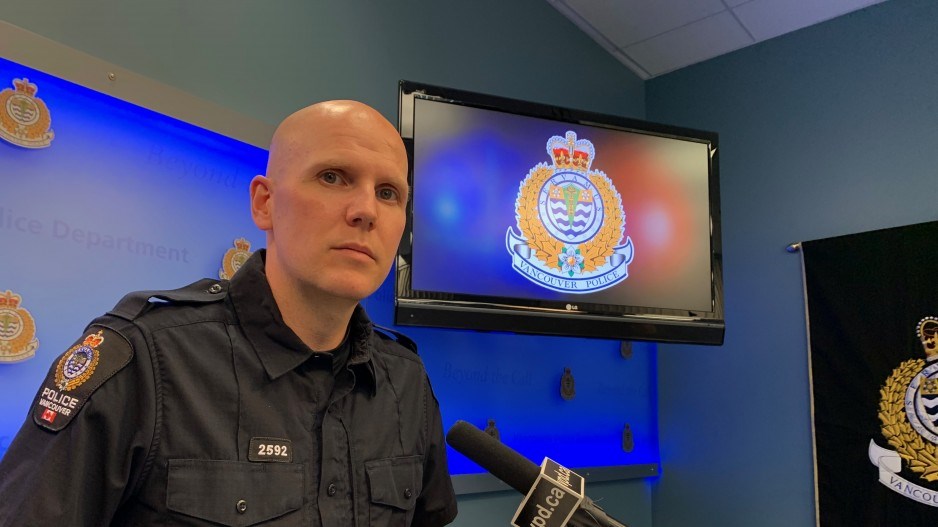The Vancouver Police Department (VPD) on July 19 raided two large drug labs in an industrial area south of Marine Drive because of fears that the labs could explode and harm the public, Const. Steve Addison told media July 22.
He said many businesses are located in the 9000 block of Shaughnessy street, where the two search warrants were executed and the raids took place. As such there was a risk of harm to people who were in those legal businesses. That risk was significant enough to make the police prioritize the raids. In contrast, police rarely conduct raids on the many illegal cannabis stores in the city.
One person was arrested in the raids and Addison said he expects more people to be arrested, and for charges to be laid once the police complete their investigation. Several thousand pounds of drugs, worth millions of dollars, were seized in addition to equipment, he added.
The VPD’s organized crime section worked with what Addison called the RCMP’s “clandestine lab team” to execute the search warrants.
Some of the products that police believe the labs were manufacturing include shake, shatter, oils, concentrates, balms and edibles. Many of those products remain illegal under the federal Cannabis Act even if they are manufactured by licensed producers.
Products such as concentrates and edibles are set to become legal on October 17. Licensed producers then must provide Health Canada with 60 days notice that they intend to produce the products. Legal concentrates and edibles could then hit legal store shelves as early as the holiday season.
Addison stressed that the danger that was posed by the illegal labs stemmed from workers using volatile organic solvents, such as butane. The Cannabis Act forbids the general public from using organic solvents to alter the chemical or physical properties of cannabis.
The act, however, exempts licensed producers from that ban as long as the finished products show extremely low residual traces of those solvents, Rubicon Organics CEO Jesse McConnell and Pasha Brands director of government relations Susan Chapelle separately told Business in Vancouver.
Health Canada has this list of limits for residual solvents in finished cannabis products.
Representatives at the licensed producer Blissco were open about using ethanol for extraction when they took media on a tour of their Langley facility last year.
McConnell said that liquefied carbon dioxide is the preferred primary method to initially extract a crude oil from dried cannabis flowers and that it is possible to use butane on that resulting crude oil to do further extraction, and remove terpenes, for example. Blissco also initially uses liquefied carbon dioxide.
A licensed producer can legally go through this dual extraction and mix the resulting concentrate with olive oil, or some other oil, to produce a low-concentration cannabis oil compound that could be distributed to legal retail stores.
The B.C. government’s independent Community Safety Unit (CSU), which acts under Solicitor General Mike Farnworth, was not involved in the July 19 raids as its focus is primarily illegal retail operators.
The CSU has been communicating with the City of Vancouver, and has been "educating" unlicensed cannabis retail store operators on the process that they need to go through to become legal, Farnworth told BIV in a phone interview earlier this month.
“We’ve got this community safety unit that’s going to be cracking down,” he said. “If people try to skirt around that by doing something that is illegal, then of course there are consequences and the police will no doubt act on illegal operations.”
Farnworth said there was no target date for when his CSU will launch raids on illegal cannabis retailers, which they are able to do independent of police.
“[The CSU] is aware of the [illegal] stores,” he said. “They are aware of what is taking place, the unit is. They will be shutting stores down.”
A BIV investigation into the cannabis retail market in the city of Vancouver in June found that there were 37 stores in total, with only six of those being fully legal. The story also reveals the varying shades of grey-market in which the non-provincially licensed stores operate.
Since the story appeared, a seventh legal cannabis store opened in Vancouver. It is a third store in the City Cannabis chain and is at 2317 Cambie Street.




